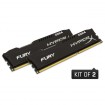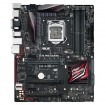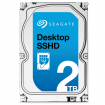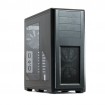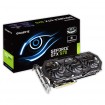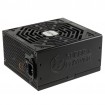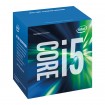Hi Overclockers
Looking for some advice on what to get With 7 to £800 to spend looking for something with these specs
Windows 10
Intel® Core™ i5-6400 Processor
Memory: 8 GB
Graphics: NVIDIA GeForce GTX 960
Hard drive: 1 TB
I have looked at this
Technical specifications for ** Competitor name removed **
OVERVIEW
Type Gaming PC
Operating system Windows 10
SPECIFICATION
Processor - Intel® Core™ i5-6400 Processor
- Quad-core
- 2.7 GHz / 3.3 GHz with TurboBoost
- 6 MB cache
Memory (RAM) 8 GB Kingston Hyper-X FURY RAM (16 GB maximum installable RAM)
Graphics card NVIDIA GeForce GTX 960 (2 GB GDDR5)
Storage 1 TB HDD, 7200 rpm
Motherboard Asus H110M-D D3
CONNECTIVTY
Wireless No
Ethernet Gigabit Ethernet (10/100/1000)
USB - USB 3.0 x 2
- USB 2.0 x 6
Video interface - HDMI x 1
- DVI x 1
- DisplayPort x 1
Audio interface 3.5 mm jack
MEDIA
Optical disc drive DVD/RW
Expansion card slot PCIe (x1) x 2
SOUND
Sound 5.1 surround sound
POWER
PSU Corsair VS450, 450 W
This costs about £700 plus another £45 for Corsair Raptor K30 Gaming keyboard and HP BR376AA Optical Mouse
Is that good or could i get a better deal here
Long post i know
Hope you all got to here
Cheers for any advice
Looking for some advice on what to get With 7 to £800 to spend looking for something with these specs
Windows 10
Intel® Core™ i5-6400 Processor
Memory: 8 GB
Graphics: NVIDIA GeForce GTX 960
Hard drive: 1 TB
I have looked at this
Technical specifications for ** Competitor name removed **
OVERVIEW
Type Gaming PC
Operating system Windows 10
SPECIFICATION
Processor - Intel® Core™ i5-6400 Processor
- Quad-core
- 2.7 GHz / 3.3 GHz with TurboBoost
- 6 MB cache
Memory (RAM) 8 GB Kingston Hyper-X FURY RAM (16 GB maximum installable RAM)
Graphics card NVIDIA GeForce GTX 960 (2 GB GDDR5)
Storage 1 TB HDD, 7200 rpm
Motherboard Asus H110M-D D3
CONNECTIVTY
Wireless No
Ethernet Gigabit Ethernet (10/100/1000)
USB - USB 3.0 x 2
- USB 2.0 x 6
Video interface - HDMI x 1
- DVI x 1
- DisplayPort x 1
Audio interface 3.5 mm jack
MEDIA
Optical disc drive DVD/RW
Expansion card slot PCIe (x1) x 2
SOUND
Sound 5.1 surround sound
POWER
PSU Corsair VS450, 450 W
This costs about £700 plus another £45 for Corsair Raptor K30 Gaming keyboard and HP BR376AA Optical Mouse
Is that good or could i get a better deal here
Long post i know
Hope you all got to here
Cheers for any advice



 alit GeForce GTX 960 "Reference" 4096MB GDDR5 PCI-Express Graphics Card (NE5X960010G1-2061F)
alit GeForce GTX 960 "Reference" 4096MB GDDR5 PCI-Express Graphics Card (NE5X960010G1-2061F)
